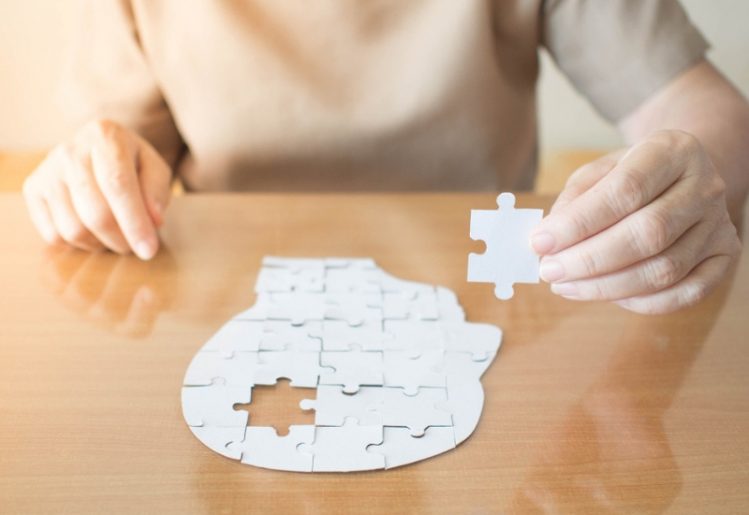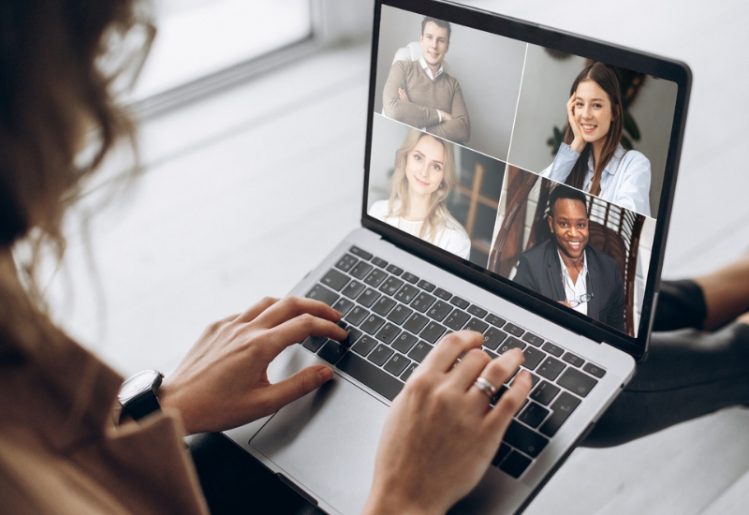Dementia is a condition that affects millions of people in the elderly population, as well as their loved ones. While you can never entirely prevent dementia, new evidence shows that making an effort to stay social in your later years will help to lower your risk of dementia by 12 percent. Here is what you need to know about social activity benefits and how they relate to your overall mental health and cognitive acuity.
Understanding Dementia
 Many people think that dementia is a specific disease, however, it is actually an umbrella term used to describe a variety of symptoms of cognitive decline, including forgetfulness and other types of memory and communication impairments. One of the most prominent health conditions that falls under the classification of dementia is Alzheimer’s disease. Other types of dementia include Huntington’s disease and Parkinson’s disease.
Many people think that dementia is a specific disease, however, it is actually an umbrella term used to describe a variety of symptoms of cognitive decline, including forgetfulness and other types of memory and communication impairments. One of the most prominent health conditions that falls under the classification of dementia is Alzheimer’s disease. Other types of dementia include Huntington’s disease and Parkinson’s disease.
Risk Factors of Dementia
Although there is no one underlying cause of dementia, there are elements that can boost your risk of suffering from mental impairment as you get older. Post-traumatic dementia is the result of brain cell death at the hands of an acute injury. This is particularly common in athletes who receive repeated blows to the head. Some forms of dementia can also be traced back to strokes, brain tumors or other types of diseases and infections.
Symptoms of Dementia
While it is important to not believe that every minor memory slip is a sign of impending dementia, knowing the most common symptoms can help you to spot possible signs. Some of the most common symptoms of early dementia include recent memory loss, issues with communicating, disorientation and changes in mood. As dementia progresses into the later stages, individuals may need full-time care because of their inability to perform basic life functions.
Protecting Yourself From Dementia
Because brain cell death cannot be reversed, there is no permanent cure for degenerative dementia. However, there are available treatments that can slow down the progression of the disease and prevent further damage. The use of cholinesterase inhibitors has shown promise in reducing the symptoms of Alzheimer’s disease. In addition, natural formulas like Neurochron provide brain-nourishing ingredients that help maintain healthy brain function and cognition.
Social Activity Benefits – What the Studies Say
Emerging research continues to demonstrate that social activity can play an instrumental role in protecting the brain from memory loss. A new study out of Ohio State University showed that having a big social network had a positive effect on cognitive function. The study examined the cognitive function of two groups of mice. One group did not socialize with other mice while the opposite group was put into social situations necessitating that they interact with other rodents at more complex levels. The group of mice that had been housed with other mice performed significantly better on memory exercises.
In another study out of the University College London in the United Kingdom, researchers went through a retrospective analysis on a group of people over a period of three years. The researchers collected data from the subjects outlining their social activity while assessing their cognitive abilities through a myriad of memory, fluency and reasoning tests. The results of the study indicated that more frequent contact with friends had a strong correlation with a lower risk of dementia.
Difficulty Staying Social During a Pandemic
Despite your best intentions to be social, the ongoing COVID-19 global pandemic has made it challenging to connect with others and enjoy social activity benefits. The good news is that with a little creativity, you can still find ways to be social and boost your overall sense of well-being. Here are a few ways that you can connect throughout this period of self-isolation.
Join an Online Community
 In today’s modern digitized world, it is easy to build your own community online. Regardless of it is a community dedicated to your favorite hobby, your college alumni association or a cooking group, you can find your people online.
In today’s modern digitized world, it is easy to build your own community online. Regardless of it is a community dedicated to your favorite hobby, your college alumni association or a cooking group, you can find your people online.
Plan a Virtual Hangout
Virtual hangouts are the new happy hour these days. Simply choose your platform, pick a date and time, invite all of your favorite people and let the fun begin. The best thing about this is that you can now connect with all of your friends and family, regardless of where they live.
Volunteer
You do not have to be in-person to volunteer. There are a variety of ways that you can give your time and talents through the comfort of your own home. You can challenge your friends for a fundraiser, spread awareness about an issue important to you and more. By doing so, you will feel good about yourself and connect with others at the same time.
It is clear that it is worth your investment to be diligent about the upkeep of social connections. In addition to the obvious benefits of surrounding yourself with the people that you love, being intentional about maintaining these relationships may have a positive effect on your cognitive abilities as you age.


